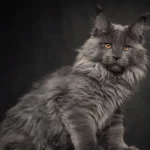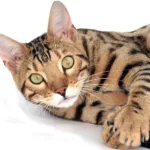√√ REVIEWED & FACT-CHECKED BY
Choosing the right cat breed is essential, as it means welcoming a new member into your family. With numerous breeds to consider, it can be challenging to determine which one is best suited for you. In this exploration of different breeds of cats, we’ll discuss various options, from the majestic Maine Coon to the elegant Siamese. Each breed offers unique characteristics and traits that can enhance your life. Whether you’re a first-time cat owner or a seasoned feline enthusiast, we unravel the mystery of ‘which type breed is best for you?’ Let’s discover the furry companion destined to steal your heart.
Which Cat Breed is Best for Me?
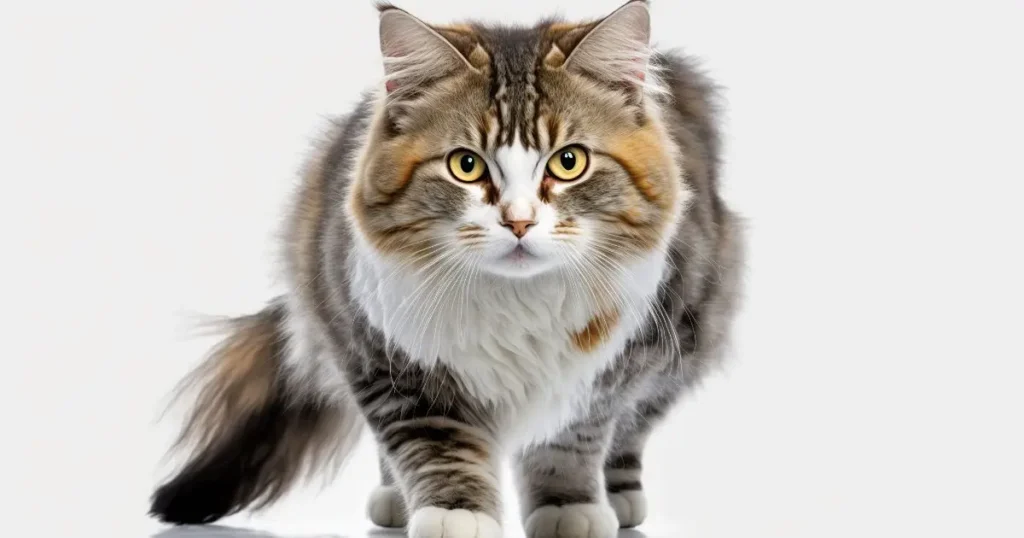
When determining the best breed of cat for an individual, consider important factors such as lifestyle, preferences, and needs. Assess your daily routine, living situation, and the amount of time you can dedicate to caring for a cat. Determine whether you prefer a highly interactive and social cat or a more independent, low-maintenance companion. Understanding your requirements and expectations will help narrow the choices and guide you toward the most suitable breeds of cats.
Take the time to learn about various breeds’ characteristics, temperament, and specific care needs. Utilize resources such as breed guides, reputable websites, and books on different breeds of cats to gain insights into their behavior and traits. Seek advice from experienced cat owners, breeders, or veterinarians who can provide valuable recommendations based on your lifestyle and preferences.
The Factors to Consider When Choosing a Cat Breed
Personality Traits: Different breeds of cat are known for specific personality traits that influence the human-cat relationship. For example, breeds like the Ragdoll are affectionate, while the Siamese are vocal and outgoing. Understanding these traits helps owners choose a compatible breed.
Activity Level: Cat breeds vary in energy levels, from highly active breeds like the Bengal to more laid-back breeds like the British Shorthair. Matching the cat’s activity level with the owner’s lifestyle is vital for a harmonious relationship.
Grooming Needs: Grooming varies among breeds, with long-haired breeds requiring more maintenance than short-haired breeds. Owners should be prepared to meet their cat’s grooming needs to keep them healthy and comfortable.
Allergies: Some breeds produce fewer allergens than others, making them suitable for allergy sufferers. Breeds like the Sphynx and Devon Rex are often considered hypoallergenic due to their minimal shedding. Regular grooming and cleaning can also help reduce allergen exposure in the home.
Breeds That Thrive In Larger Homes or Outdoors
If you have a larger home or access to outdoor areas, you may prefer breeds that enjoy exploring and have a more active lifestyle. Breeds such as the Maine Coon, Bengal, or Savannah breed are well-suited for larger homes or those with outdoor space. These breeds are known for their adventurous spirit and love of exploration, and they will appreciate having ample room to roam, climb, and play. Providing outdoor access or creating a stimulating indoor environment with climbing structures and interactive toys will help fulfill their need for physical and mental stimulation.
Whether you live in an apartment or a larger home, selecting the best cat breed that matches your living environment and lifestyle will ensure a happy and harmonious relationship between you and your feline companion. By considering factors such as space constraints, activity levels, and the cat’s individual needs and temperament, you can make an informed decision that will result in a fulfilling and enriching companionship for you and your cat.
Personality Traits of Popular Cat Breeds
Each popular breed of cat has unique characteristics suitable for different owners and lifestyles. Whether you prefer the gentle Maine Coon, vocal Siamese, luxurious Persian, relaxed Ragdoll, or playful Bengal, there’s a breed to match your preferences.
- Maine Coon
- Siamese
- Persian
- Ragdoll
- Bengal
Known as the ‘gentle giant,’ Maine Coons are affectionate, friendly, and playful. They adapt well to various environments, making them suitable for families and singles alike.
Siamese cats are highly social and outgoing, forming strong bonds with their owners. They’re affectionate, with distinctive blue eyes and a pointed coat pattern.
Persians have luxurious, long fur and a calm demeanor. They’re sweet, gentle, loyal companions who enjoy a quiet lifestyle.
Ragdolls are docile, friendly types of cat breed known for going limp when picked up. They’re ideal for families with children and other pets.
Bengals are energetic, intelligent cats with a wild appearance. They enjoy interactive play and thrive in stimulating environments.
Activity Levels of Cat Breeds
Categorizing cat by activity levels helps understand their needs and compatibility with different lifestyles. Breeds like the Abyssinian are known for their high energy and playful nature, thriving on mental and physical stimulation. They enjoy interactive play and exploration.
In contrast, breeds like the British Shorthair have a low-energy, laid-back demeanor. They’re content with a relaxed indoor lifestyle, enjoying lounging in sunny spots and observing their surroundings.
Grooming Needs of Different Cat Breeds
Long-Haired Breeds
Some breeds, such as the Himalayan, Persian, and Maine Coon, have long coats that require regular grooming to prevent matting and tangles. Owners should establish a grooming routine that includes daily brushing and occasional baths to maintain their luxurious coats.
Short-Haired Breeds
Short-haired breeds like the Russian Blue, Siamese, and Bengal have lower grooming needs but still benefit from regular brushing to reduce shedding. Occasional baths may also be necessary to keep their skin and coat healthy.
Personal Preferences
Lastly, personal preferences play a significant role in choosing the right breed. Whether you’re drawn to a particular size, coat color, or physical appearance, it’s essential to consider what traits resonate with you and align with your preferences. Some individuals may have a specific breed in mind based on previous experiences or aesthetic preferences, while others may prioritize personality traits such as affection, intelligence, or independence.
Hypoallergenic Cat Breeds
Hypoallergenic cat breeds, such as the Sphynx, Devon Rex, and Balinese, produce fewer allergens than other breeds, making them suitable options for individuals with allergies.
1. Sphynx
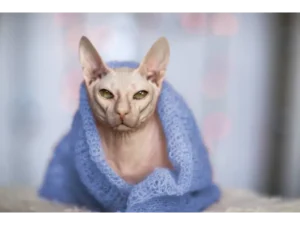
Known for its lack of fur, the Sphynx cat produces fewer allergens than other breeds. While they still emit some allergens through their skin oils, their minimal dander and fur make them popular choices for allergy sufferers.
2. Devon Rex

The Devon Rex has a soft, curly coat and minimal shedding, reducing the likelihood of causing allergic reactions in sensitive individuals. Their playful and social nature further enhances their appeal as companions for allergy sufferers.
3. Balinese
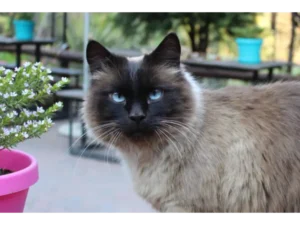
Despite being a long-haired breed, the Balinese produce fewer allergens than other breeds due to its low shedding and minimal dander production. While not entirely hypoallergenic, Balinese cats suit individuals with mild to moderate allergies.
Hypoallergenic breeds can relieve allergy sufferers by producing fewer allergens, reducing the risk of triggering allergic reactions.
Conclusion
Choosing the right cat breed requires careful consideration and research. Throughout this post, we’ve discussed various factors to consider, including personality traits, activity levels, grooming needs, and hypoallergenic qualities. The best way to make an informed decision is to conduct thorough research. Explore different breeds, their characteristics, and how they align with your lifestyle. Reach out to breeders, shelters, or experienced cat owners for insights. Remember, adopting a cat is a long-term commitment. When choosing a breed, consider your living situation, family dynamics, and future plans. By adopting responsibly and selecting a breed that fits your lifestyle, you’ll embark on a journey of companionship and love.
FAQ
Are there any hypoallergenic cat breeds?
Several breeds of cats are considered hypoallergenic, meaning they produce fewer allergens than other breeds. Examples include the Sphynx, Devon Rex, and Balinese. While no breed of cat is entirely hypoallergenic, these breeds are often more suitable for individuals with allergies. Regular grooming can also help reduce allergen levels.
What are some low-maintenance cat breeds in terms of grooming?
Breeds like the American Shorthair and the British Shorthair require minimal grooming compared to long-haired breeds like the Maine Coon or Persian.
How do I know if a specific cat breed will fit my lifestyle?
Researching breed characteristics, consulting with breeders or rescue organizations, and spending time with cats of different breeds can help you make an informed decision.
Are there any breeds known for being particularly affectionate or independent?
Yes, breeds like the Ragdoll and the Scottish Fold are known for their affectionate nature, while breeds like the Siamese and the Bengal are more independent.


